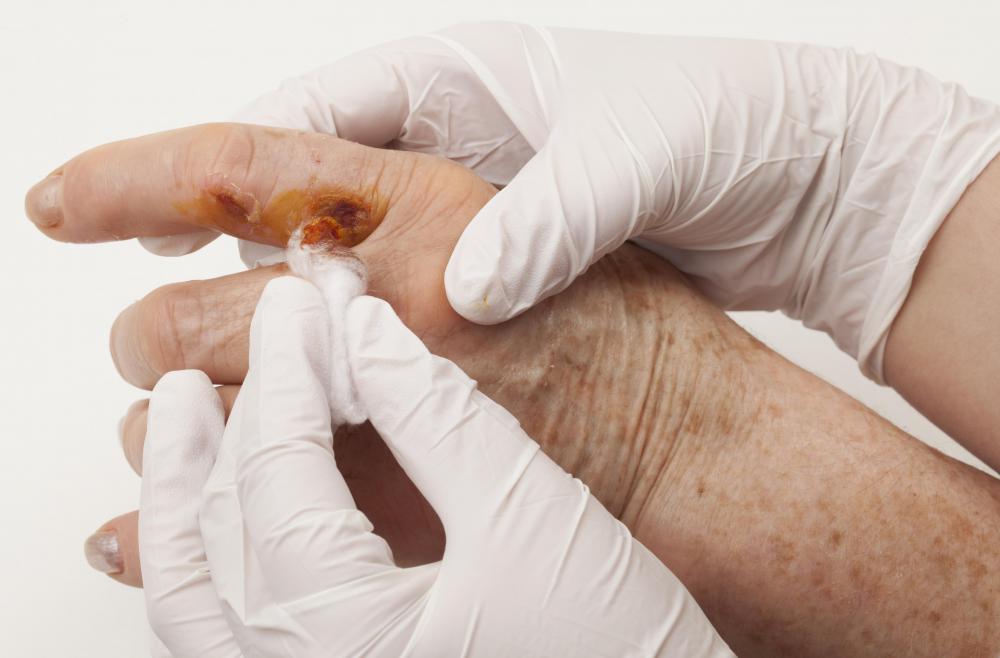At TheHealthBoard, we're committed to delivering accurate, trustworthy information. Our expert-authored content is rigorously fact-checked and sourced from credible authorities. Discover how we uphold the highest standards in providing you with reliable knowledge.
How Do I Treat Corn Snake Bites?
Corn snakes are small- to medium-sized, brownish-orange, non-venomous snakes which are indigenous to the southeastern segment of the United States, but which may be kept as pets by individuals in many different countries. Due to an absence of venom, corn snake bites are usually only a minor injury. Still, if you have been bitten it is important to clean the affected area thoroughly to prevent infection and to seek medical attention if your skin has been broken. When a corn snake bites and refuses to release its grasp on the skin, it is also important to proceed with caution to avoid injuring the snake.
Some snakes kill their prey by using sharp fangs to inject it with fatal venom. As a constrictor, the corn snake lacks both venom and sharp fangs. Like other constrictors, it winds its body around its prey, eventually suffocating it. As they do not involve venom, corn snake bites usually are not serious. In fact, if you are bitten by a corn snake, there is a good chance that the animal’s teeth will not break your skin.

Nevertheless, a corn snake’s mouth may contain bacteria which can cause an infection if they are allowed to remain on the skin, particularly among young children and those with depressed immune systems. Therefore, while most corn snake bites do not need emergency medical attention, you should take care to wash the affected area thoroughly with soap and water as soon as possible following a bite. If the snake’s bite has broken your skin, you might wish to consult your physician, particularly if you have not had a tetanus booster in the past five to ten years. After evaluating the wound, your physician may administer a tetanus shot or may prescribe antibiotics to reduce the risk of infection.

Finally, when a corn snake bites and refuses to release its grasp on the skin, your first instinct may be to panic. In order to avoid injuring the snake’s teeth and jaw, however, it is important to avoid attempting to wrench it away. Often, snakes bite because they feel threatened or stressed, so remaining calm and still may encourage the snake to release his grasp. To persuade a particularly stubborn corn snake to release a bite, some snake owners recommend running the animal’s head under a very gentle stream of water.
AS FEATURED ON:
AS FEATURED ON:















Discussion Comments
Snake mouths are filthy, and can carry salmonella, so if you get nailed, do as the article says and wash the bite area with antibacterial soap and water.
If you're current on your tetanus shots, you're probably OK on that front, but if the skin is broken, make sure you keep the place clean and put antibiotic ointment on it along with a sterile bandage of some kind.
Obviously, be careful about handling your snake, if it's a pet. If you found it in the wild, remember to leave wild snakes strictly alone. You might make a bad mistake and pick up a copperhead, and wouldn't that be fun if that snake nailed you? Then you'd be in for a trip to the ER, even for a dry bite.
Post your comments